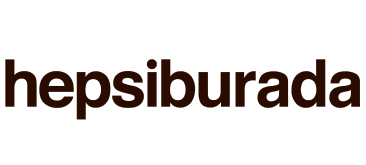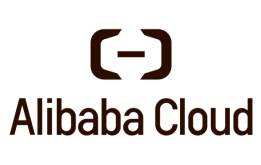Medianova CDN ile Web Sitesi Hızınızı Artırın ve Kullanıcı Deneyimini İyileştirin
Statik ve dinamik içeriği ultra yüksek hız, güvenlik ve güvenilirlikle – her zaman, her yerde sunun. Küresel ve yerel yaklaşımımız, gelişmiş CDN özelliklerimiz, üst düzey destek ve güçlü analizler bizi farklı kılan unsurlardır.
tarafından
24 saat içinde iletişime geçeceğiz.
Türkiye'de sektöründe lider firmalarla çalışıyoruz.








Her Açıdan Fayda Sağlamak İçin Tasarlanmış
Yüksek Hızlı Performans
Anycast DNS destekli küresel ağımızla daha hızlı içerik teslimi sağlayın. Dosya boyutlarını küçültüp trafiği optimize ederek içeriğinizi ziyaretçilere en yakın noktadan sunuyoruz.
Kesintisiz Erişim
Kesintisiz hizmet için yük dengeleme, multi-origin failover ve akıllı DNS yönlendirme kullanarak trafiği en uygun sunucuya yönlendirin. Yüksek uptime ile iş sürekliliğini garanti altına alın.
Maliyetleri Düşürün
CDN içinde içeriğinizi önbelleğe alarak bant genişliği tüketim maliyetlerini düşürün ve orijin sunucunuzla veri transferini en aza indirin. CDN yatırımınızdan daha fazla tasarruf sağlayın.
Saldırı Dayanıklılığı
CDN’in anormal trafik dalgalanmalarını absorbe etme yeteneğiyle DDoS saldırılarını orijine ulaşmadan engelleyin. Web sitenizi her zaman güvenli ve erişilebilir tutun.

Medianova CDN ile Güçlenen Başarı Hikayeleri

Ort. yükleme süresi
Yanıt süresi
Toplam indirilen bayt (WebP)

Önbellekten karşılama oranı
İçerik yükleme süresi
Sayfa yükleme süresi
CDN Nedir?
CDN (Content Delivery Network), yani İçerik Dağıtım Ağı, internet üzerindeki web sitelerinin içeriklerini kullanıcılara en hızlı ve en verimli şekilde ulaştırmak için kullanılan bir teknolojidir. Geleneksel sunucular, tüm ziyaretçilerine tek bir merkezden hizmet verirken, CDN ağı içeriği farklı lokasyonlara dağıtarak sunucu yükünü hafifletir ve yükleme süresini düşürür. … Günümüzde, web sitelerinin hızı ve performansı kullanıcı deneyimi açısından kritik öneme sahiptir. Sayfa yükleme süresi ne kadar kısa olursa, ziyaretçilerin sitede daha uzun süre kalma ihtimali o kadar artar. CDN ağı nedir sorusunun en basit yanıtı şu şekildedir: CDN, içeriği kullanıcının fiziksel olarak en yakın sunucusundan sunarak sayfa yüklenme süresini en aza indirir. CDN, dinamik içeriklerin, görsellerin, videoların ve diğer veri türlerinin daha hızlı iletilmesini sağlar. Medianova CDN, dünya çapında 25+ ülkede 50+ POP noktasıyla ve Türkiye’de 11 farklı veri merkeziyle içerik dağıtımı yaparak bu süreci optimize eder.CDN Nasıl Çalışır?
CDN (Content Delivery Network), yani İçerik Dağıtım Ağı, web sitelerinin içeriklerini coğrafi olarak dağıtarak, kullanıcılara en hızlı ve verimli şekilde ulaştırılmasını sağlar. Bir web sitesi ziyaret edildiğinde, veriler genellikle tek bir ana sunucudan yüklenir. Ancak, CDN kullanıldığında, içerikler dünyanın dört bir yanındaki önbellek (cache) sunucularına dağıtılarak kullanıcılara en yakın noktadan sunulur. Bu sayede sayfa yükleme süreleri azalır, sunucu yükü hafifler ve kullanıcı deneyimi önemli ölçüde iyileşir. Özellikle Medianova CDN, statik ve dinamik içerik optimizasyonu yaparak, web sitelerinin daha akıcı ve kesintisiz çalışmasını sağlar.CDN’in Çalışma Mekanizması
- Önbellekleme (Caching): CDN, sık kullanılan statik içerikleri (CSS, JavaScript dosyaları, resimler, videolar) önbelleğe alarak sunucu yükünü azaltır ve site hızını artırır.
- Coğrafi Dağıtım: Bir kullanıcı web sitesine giriş yaptığında, CDN onu fiziksel olarak en yakın sunucuya yönlendirir.
- Sunucu Yükünü Hafifletme: Tüm trafik tek bir sunucuya yüklenmez, CDN trafiği dağıtarak sunucu çökmesini önler.
CDN Kullanmanın Avantajları
Dijital dünyada hız, güvenlik ve kullanıcı memnuniyeti, bir web sitesinin başarısını belirleyen temel faktörlerdir. Yavaş açılan bir web sitesi, hem ziyaretçileri kaybetmenize neden olur hem de SEO sıralamalarınızı olumsuz etkiler. CDN kullanımı sayesinde bu sorunların önüne geçebilir, web sitenizi optimize edebilir ve kullanıcılarınıza daha iyi bir deneyim sunabilirsiniz. Aşağıda, CDN kullanmanın en önemli avantajlarını detaylı bir şekilde inceleyelim.1. Web Sitesi Hızlandırma: Sayfa Yükleme Süresini %50’ye Kadar Azaltın
Bir web sitesinin hızlı açılması, hem kullanıcı deneyimi hem de SEO performansı açısından kritik bir faktördür. Kullanıcılar, bir web sitesinin yüklenmesi 3 saniyeden uzun sürerse siteyi terk etme eğilimindedir. Bu nedenle, yükleme sürelerini optimize etmek, dönüşüm oranlarını artırmak için hayati önem taşır.CDN Sayfa Yükleme Süresini Nasıl Azaltır?
- İçeriği Kullanıcıya En Yakın Sunucudan Sunar CDN, statik ve dinamik içerikleri önbelleğe alarak (caching) coğrafi olarak dağıtır ve böylece ziyaretçilere fiziksel olarak en yakın sunucudan veri sağlar.
- Gecikmeyi (Latency) Minimuma İndirir Bir web sitesine erişmek isteyen bir kullanıcı, veriyi ana sunucudan almak yerine, en yakın CDN POP (Point of Presence) noktasından alarak siteyi daha hızlı açabilir.
- Dosya Yüklemelerini Optimize Eder CDN, CSS, JavaScript, görseller ve videolar gibi büyük boyutlu dosyaları sıkıştırarak daha hızlı yüklenmesini sağlar.
CDN Kullanımının Sayfa Yükleme Süresine Etkisi
Örneğin: Bir e-ticaret sitesi CDN kullanmadan önce 6 saniyede yüklenirken, CDN entegre edildiğinde yüklenme süresi 3 saniyeye kadar düşebilir. Sonuç: Daha hızlı açılan sayfalar, daha iyi SEO performansı, daha yüksek dönüşüm oranları.CDN ile Web Sitesi Hızını Artırmanın Avantajları
- Kullanıcıların web sitenizde daha uzun süre kalmasını sağlar.
- SEO açısından daha iyi sıralamalar elde etmenize yardımcı olur.
- Reklam ve dönüşüm oranlarını artırır.
2. Sunucu Yükünü Azaltma: Hosting Maliyetlerini Düşürün
CDN’in bir diğer önemli avantajı, ana sunucunun üzerindeki yükü hafifletmesi ve hosting maliyetlerini düşürmesidir. Geleneksel bir web sunucusu, tüm kullanıcı isteklerini doğrudan işler ve bu da sunucunun aşırı yüklenmesine, yavaşlamasına ve hatta çökmesine neden olabilir. CDN kullanıldığında, bu yük dağıtılır ve ana sunucu daha az iş yüküyle çalışır.CDN Sunucu Yükünü Nasıl Azaltır?
- Trafiği Farklı POP Noktalarına Dağıtır: Tüm trafik tek bir sunucuya yönlendirilmek yerine, farklı coğrafi lokasyonlara dağıtılarak sunucunun aşırı yüklenmesi önlenir.
- Statik İçeriği Önbelleğe Alır: CSS, JavaScript, görseller ve videolar gibi sık kullanılan içerikler önbellek sunucularında saklanarak, ana sunucuya yapılan isteklerin sayısı azaltılır.
- Trafik Dalgalarını Engeller: Ani trafik artışları (örneğin Kara Cuma gibi özel kampanya dönemleri) sunucuların çökmesine neden olabilir. CDN, bu dalgalanmaları dengeler ve kesintisiz bir kullanıcı deneyimi sağlar.
CDN Kullanımının Sunucu Maliyetlerine Etkisi
Özellikle büyük ölçekli web siteleri için, sunucu kapasitesini artırmak yüksek maliyet gerektirir. CDN sayesinde, trafik yönetimi optimize edilerek sunucu maliyetleri %40’a kadar azaltılabilir.- CDN kullanılmadığında: Yoğun saatlerde sunucuya aşırı yük biner ve yavaşlamalar yaşanır.
- CDN kullanıldığında: Yük dağıtılarak sunucu kaynakları daha verimli kullanılır.
CDN Kullanımının Sunucu Avantajları:
- Hosting maliyetlerini düşürür.
- Sunucu çökme riskini ortadan kaldırır.
- Trafik yönetimini optimize eder.
3. Daha İyi Kullanıcı Deneyimi: Web Sitelerinizi Daha Akıcı Hale Getirin
CDN’in en büyük katkılarından biri de kullanıcı deneyimini iyileştirmesidir. Yavaş açılan ve donan web siteleri, kullanıcıları kaçıran en büyük sorunlardan biridir. Bir web sitesinin kullanıcı deneyimi açısından değerlendirilmesi gereken faktörler:- Sayfa Açılış Hızı: Kullanıcıların bekleme süresi ne kadar azsa, sitede geçirdiği süre o kadar artar.
- Gecikme Süresi (Latency): Kullanıcıların sayfalara hızlı geçiş yapabilmesi için minimum gecikme süresi önemlidir.
- Mobil Uyum: Mobil cihazlardan giren ziyaretçiler için sayfaların hızlı yüklenmesi çok kritik bir faktördür.
- Kesintisiz İçerik Yükleme: CDN, içerikleri parça parça yükleyerek (Lazy Load) daha akıcı bir deneyim sağlar.
CDN Kullanımının Kullanıcı Deneyimine Katkısı
Örneğin:- CDN kullanılmayan bir haber sitesi, trafik yoğunluğunda yavaşlayarak ziyaretçileri kaybeder.
- CDN kullanılan bir haber sitesi ise, yüksek trafik anlarında bile kesintisiz hizmet sunarak kullanıcıların sitede daha uzun süre kalmasını sağlar.
CDN Kullanımının Kullanıcı Deneyimine Etkisi:
- Kullanıcıların sayfalar arasında daha hızlı gezinmesini sağlar. Mobil cihazlardan giren kullanıcılar için hız ve performansı artırır. Web sitelerinin daha akıcı ve kesintisiz çalışmasını sağlar.
CDN’in SEO Üzerindeki Etkisi
CDN kullanımı, SEO (Arama Motoru Optimizasyonu) açısından büyük avantajlar sunar. Google’ın Core Web Vitals kriterlerine göre sayfa hızı, kullanıcı deneyimiyle doğrudan ilişkilidir ve sıralamaları etkileyen önemli faktörlerden biridir. CDN kullanarak web sitenizi hızlandırabilir, sunucu yükünü azaltabilir ve kullanıcı deneyimini iyileştirebilirsiniz. Bir web sitesinin SEO performansını etkileyen temel faktörler şunlardır:- Sayfa hızının artması → Sıralamalarda yükselme
- Kullanıcı deneyiminin iyileşmesi → Hemen çıkma oranlarının düşmesi
- Gecikme süresinin azalması → Daha fazla etkileşim ve dönüşüm
CDN Fiyatları ve Maliyet Hesaplama
CDN fiyatları, trafik hacmi, bant genişliği kullanımı ve ek hizmetlere göre değişiklik gösterir.- Kullandıkça Öde Modeli: Kullanılan trafik miktarına göre ödeme yapılır.
- Sabit Ücretli Planlar: Aylık sabit bir ücret karşılığında belirli bir trafik hakkı sunulur.
- Kurumsal Özel Planlar: Büyük ölçekli web siteleri için özel trafik çözümleri sunulur.
Türkiye’de CDN Hizmetleri: Yerli ve KVKK Uyumlu Çözümler
Türkiye’de CDN hizmeti veren birçok firma bulunmasına rağmen, %100 yerli ve KVKK uyumlu CDN sağlayıcıları büyük avantajlar sunar. Medianova CDN’in Türkiye’deki avantajları:- Verilerin Türkiye içinde işlenmesi sayesinde KVKK uyumu sağlar.
- Türkiye’de 11 farklı POP noktası ile düşük gecikme süresi sunar.
- Trafik dalgalanmalarına karşı ölçeklenebilir performans sunar.
Products


Company
Medianova provides global CDN and Cloud security solutions. The Gartner-mentioned company has deep experience in Dynamic Site Caching, Static Content Delivery, Image Optimization, API Caching, Streaming, Hybrid CDN, Cloud Object Storage, Web Application Firewall, and DDoS Protection. With its footprint of 50+ PoPs in 21 countries and a 100% SSD-powered Anycast network, Medianova is one of the fastest, most robust and reliable HTTPS secure CDNs in the Middle East, as validated by CDNPerf.